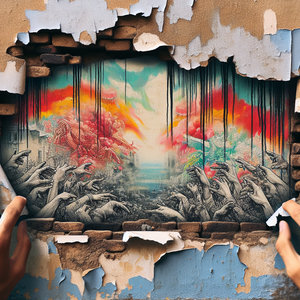The Evolution of Formula 1: From Race Tracks to Virtual Reality

The integration of technology in Formula 1 is not new; however, the pace of change has accelerated dramatically in recent years. The advent of sophisticated simulation software allows drivers to practice and refine their skills in virtual environments that closely mimic real-life conditions. These simulators provide invaluable data on vehicle dynamics and track layouts, enabling teams to optimize their cars before they even hit the track. For instance, teams like Mercedes and Red Bull Racing invest heavily in simulation technology, employing full-motion simulators that provide feedback on car performance, tire behavior, and aerodynamic efficiency. These advanced tools have transformed the training regimen for drivers, allowing them to familiarize themselves with new circuits and adjust their driving techniques before race day. Drivers now spend hours in simulators, analyzing data and tweaking their approach, which has resulted in a noticeable improvement in overall performance on race days.
The Rise of Esports in Formula 1
Alongside traditional racing, the rise of esports has introduced a new dimension to Formula 1. The F1 Esports Series, launched in 2017, has quickly gained traction, attracting both seasoned gamers and professional drivers. This series offers a platform for virtual competition, allowing fans to experience the thrill of racing without leaving their homes. The 2020 pandemic further accelerated this trend, as traditional races were postponed, and virtual events became the primary form of competition. The F1 Esports Series has not only provided a new avenue for fan engagement but has also bridged the gap between virtual and real-world racing. Many professional drivers, including Charles Leclerc and Lando Norris, have participated in these esports competitions, highlighting the skills required to excel in both environments. Such crossovers appeal to a younger audience and help cultivate a new generation of motorsport enthusiasts. The rise of esports has created a self-sustaining ecosystem, where virtual racing can exist alongside traditional formats, increasing the sport's visibility and accessibility.
Virtual Reality: A New Frontier for Fans
Virtual reality (VR) technology represents another exciting development in the evolution of Formula 1. VR allows fans to immerse themselves in the racing experience, offering a perspective that was previously unattainable. With VR headsets, fans can feel as if they are in the driver's seat, experiencing the adrenaline of the race firsthand. This technology enhances the viewing experience, making it more interactive and engaging. Moreover, F1 teams are leveraging VR for fan engagement initiatives, such as virtual tours of their garages and interactive experiences during race weekends. These initiatives not only bring fans closer to the action but also foster a sense of community among Formula 1 enthusiasts worldwide. For example, during the 2021 season, fans were able to use VR to tour the paddock and interact with team members, a feature that has garnered significant positive feedback and engagement.
The Impact on Fan Engagement and Community Building
The transformation of Formula 1 through technology has significantly impacted fan engagement. Social media platforms like Twitter, Instagram, and TikTok have become essential tools for teams, drivers, and fans to connect and share their passion for the sport. Formula 1 has embraced these platforms, offering behind-the-scenes content, live updates, and interactive polls that allow fans to participate in the conversation. Additionally, events like the Formula 1 Fan Zone create opportunities for fans to engage with the sport in person, further enhancing the community aspect of Formula 1. These events often feature interactive displays, meet-and-greets with drivers, and opportunities for fans to experience the technology that powers modern racing. Such initiatives have helped maintain high levels of engagement, even when physical attendance at races has been limited.
The evolution of Formula 1 from traditional race tracks to virtual reality is a testament to the sport's adaptability and forward-thinking approach. As technology continues to advance, it will shape the future of Formula 1 in unprecedented ways, creating new opportunities for fan engagement and redefining what it means to be a part of the racing community. By embracing innovation, Formula 1 is not only ensuring its relevance in a rapidly changing world but also paving the way for a more inclusive and interactive experience for fans around the globe. The journey from the track to the virtual realm is just the beginning, and the future of Formula 1 promises to be as thrilling as the races themselves. As the lines between reality and virtual racing continue to blur, fans can look forward to an exhilarating new era in motorsport.
Simulation Engineer (Motorsport)
Job Description
Design and develop advanced simulation tools for vehicle dynamics and driver training.
Collaborate with race engineers to analyze simulation data and optimize car performance.
Required Skills
Proficiency in MATLAB, C++, or Python; strong understanding of vehicle dynamics and aerodynamics.
Common Employers
Mercedes-AMG Petronas Formula One Team
Red Bull Racing
Ferrari
Esports Marketing Specialist
Job Description
Create and execute marketing campaigns to promote esports events and attract new audiences.
Analyze engagement metrics to refine strategies and increase fan interaction across digital platforms.
Required Skills
Experience in digital marketing, knowledge of social media analytics, and familiarity with gaming culture.
Common Employers
Codemasters
Formula 1
esports teams and organizations
Virtual Reality Developer (Gaming and Simulation)
Job Description
Develop immersive VR experiences for fans and drivers, enhancing engagement through interactive content.
Work closely with designers and engineers to ensure realistic and engaging user experiences.
Required Skills
Expertise in Unity or Unreal Engine; experience in 3D modeling and VR development.
Common Employers
F1 teams
gaming studios
tech companies specializing in VR solutions
Data Analyst (Motorsport)
Job Description
Collect and analyze data from various sources, including race telemetry and simulation outputs, to inform strategic decisions.
Develop predictive models that help teams prepare for races and improve vehicle performance.
Required Skills
Strong analytical skills, proficiency in SQL, R, or Python; experience with data visualization tools.
Common Employers
Red Bull Racing
McLaren Racing
data analytics firms in motorsport
Fan Engagement Coordinator
Job Description
Organize and manage fan engagement activities during race weekends, including meet-and-greets and interactive experiences.
Develop content for social media platforms that resonates with fans and enhances community involvement.
Required Skills
Strong communication skills, event planning experience, and a passion for motorsport.
Common Employers
Formula 1
individual racing teams
sports marketing agencies


